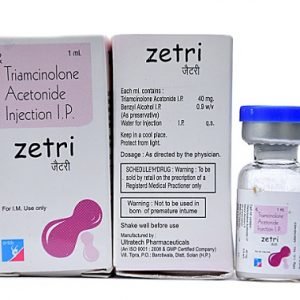Description
Pharmacology
Cefoperazone
Pharmacodynamics
Cefoperazone is a 3rd generation cephalosporin which exerts its bactericidal action against both gram positive & gram negative organisms by inhibiting bacterial cell wall synthesis. Cefoperazone inhibits Transpeptidase & thus prevents cross linking of bacterial cell wall. Transpeptidase & associated proteins constitute various types of specific binding proteins which have affinity for cephalosporin’s like Cefoperazone. It has greater action against pseudomonas & has good action against salmonella typhi & B.fragilis
Pharmacokinetics
Absorption: Orally not well absorbed & should be given parenterally,
Distribution: widely distributed & good CSF penetration,
Metabolism: It is not significantly metabolized inside the body.
Excretion: Excreted mainly through bile & a small portion is excreted in urine. A small amount is seen in breast milk.
Sulbactum
- Pharmacodynamics: – Sulbactam has no significant antimicrobial activity, despite sharing the?-lactam ring that is characteristic of beta-lactam antibiotics. This similarity in chemical structure helps the Sulbactam to act as a competitive inhibitor of beta-lactamase enzyme secreted by certain bacteria that are resistant to beta-lactam antibiotics. This inhibition restores the antibacterial activity of beta-lactam antibiotics against?-lactamase-secreting resistant bacteria. It is usually given in combination with Amoxycillin.
- It is used to increase the antibacterial spectrum of penicillin and cephalosporin against penicillinase-producing and beta-lactamase-producing organisms such as Staphylococcus aureus, H. flu, Moraxella catarrhalis that are resistant to Ampicillin alone.
Indications
Cefoperazone
- Meningitis
- Biliary infections
- Septicemia
- Infections in immune compromised patients
- Urinary tract &genital tract infections
- Surgical prophylaxis
- Skin & soft tissue infections
- Bone & Joint infections
- Gonorrhea
Sulbactam
- Skin infections
- Intra abdominal infections
- Gynecologic infections













